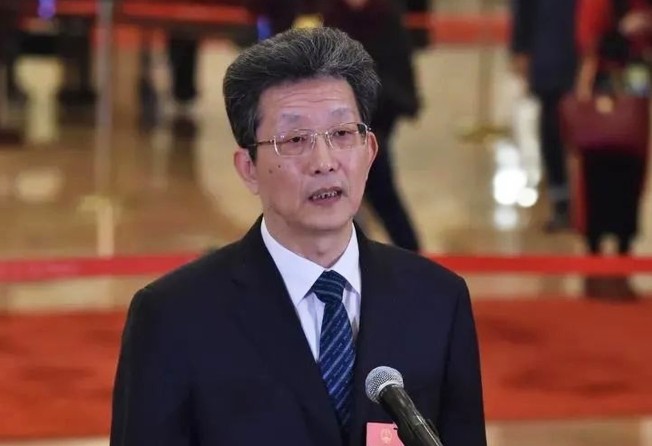China antitrust: Beijing signals that antimonopoly action will play key role in developing a ‘high-standard’ market system
- Although the antitrust plan does not go into details, it was published at a time when Beijing is stepping up scrutiny of monopoly practices in the country’s Big Tech businesses
- Until recently, China’s antitrust regulators have mainly targeted players in traditional industries such as utilities and pharmaceuticals

In a move that could be a sign Beijing’s antitrust probes into big internet platforms have just started, the Chinese government has announced a plan to “enhance and improve” implementation of the country’s antitrust laws as part of a long-term goal of building a market system of “high standard”.
China will formulate and improve laws and regulations on “how to define whether a platform enterprise is a monopoly”, as well as on the “collection, use and management of user data” and “protection of consumer rights”, according to a long-term action plan issued by the ruling Communist Party and the State Council on Sunday evening.
Authorities will also strengthen antitrust regulation in the “platform economy and sharing economy”, according to the plan.
Although the proposal does not go into details, it was published at a time when Beijing is stepping up antitrust scrutiny over the country’s Big Tech businesses. China’s State Administration of Market Regulation (SAMR) recently launched an investigation into Alibaba Group Holding for possible monopolistic behaviours such as forcing a merchant to work with only one e-commerce platform.
Separately, the People’s Bank of China, the country’s central bank, has published draft regulations on the definition of a monopoly in the third-party payment service market, a move that could affect major players such as Alipay, owned by Alibaba affiliate Ant Group, and WeChat Pay, operated by Tencent Holdings. Alibaba is the owner of the South China Morning Post.
Zhai Wei, executive director of the Competition Law Research Centre at East China University of Political Science and Law in Shanghai, said it was “a landmark document” that showed Beijing’s intention of being more active in wielding antitrust regulatory power.
Zhai said China’s anti-monopoly law, which came into effect in 2008, was just a legal framework with few implementation details for specific businesses, leaving antitrust law enforcers with the task of finding ways to regulate the internet industry and platform enterprises.
“The latest plan from the state council and the new regulations released recently will help establish a unified and clear standard for antitrust enforcement in the internet industry,” he added.
Zhang Gong, the head of the State Administration for Market Regulation, said last month that one of the top priorities for 2021 was to enhance antitrust regulation.
Until recently, China’s antitrust regulators have mainly targeted players in traditional industries such as utilities and pharmaceuticals, according to a recent Post review of more than 100 Chinese antitrust cases over the last 12 years.
However, the central government is in the process of updating laws to address changes to the economy brought about by technology.
To that end, the top leadership has decided it is now time to rein in the unchecked growth of the country’s tech giants. Meanwhile, China’s official media, including the People’s Daily, said the antitrust probe was not intended to bring about a “winter” in the industry, but rather “a new starting point”.
Under the new plan, authorities also said they will “guide healthy development” of platform enterprises, particularly those in “online healthcare, online education, third-party logistics service, real-time delivery, online office [software] and online administrative services.”